Menopause support groups—how to find the right community for you
Menopause support groups are a fantastic resource for people experiencing the hormonal change
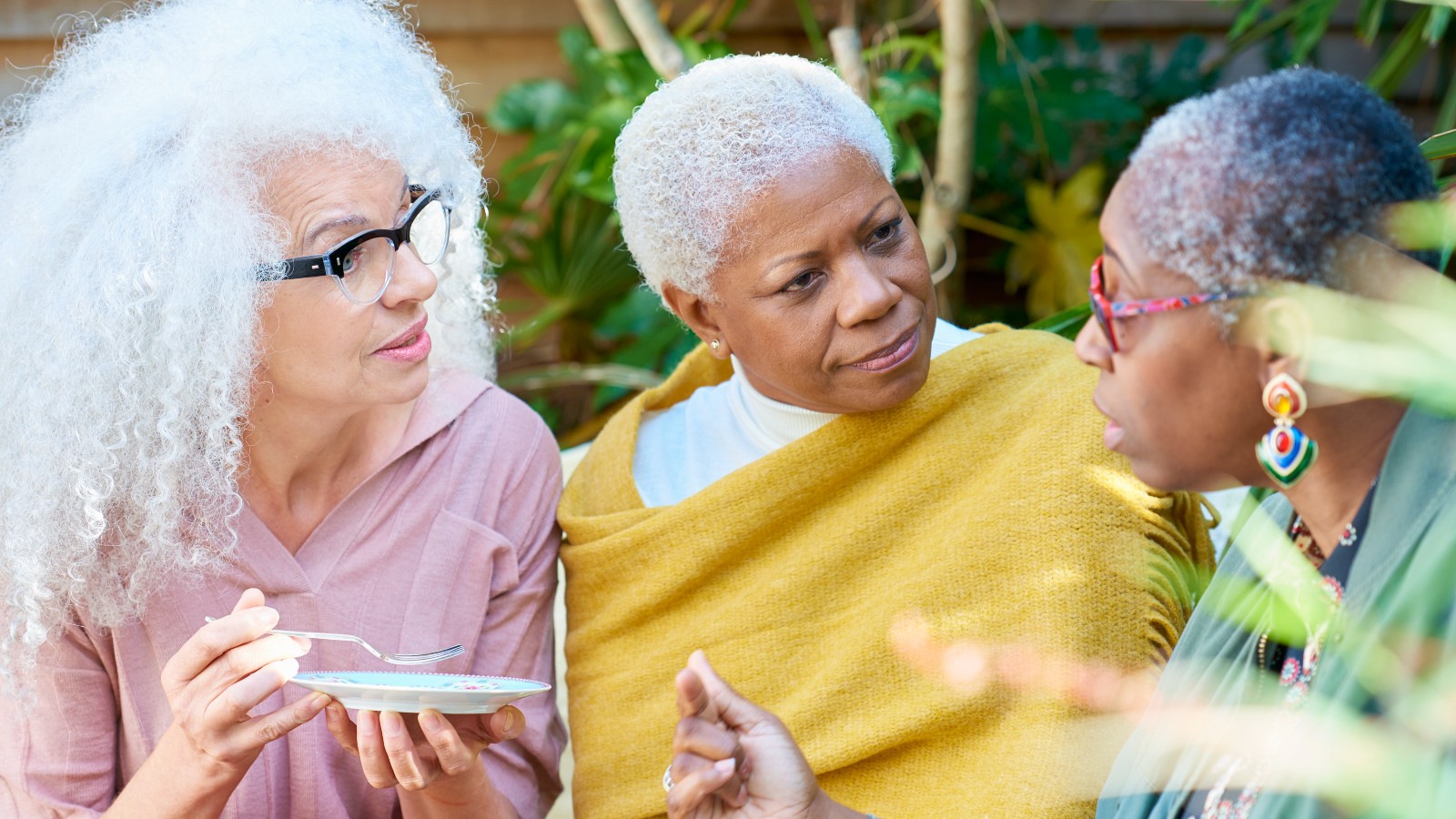
The menopause is a completely normal transition for women, but that doesn't mean that it comes without challenges.
The life stage brings with it plenty of obvious physical symptoms, due to a depletion of oestrogen; no more periods, hot flushes, night sweats, and menopause weight gain to name but a few. It's therefore no wonder that it can also end up having an impact on our mental health.
As well as the effects of the physical symptoms, the menopause can leave many women battling emotional symptoms too, including mood swings and insomnia, which can have a knock-on effect on our wellbeing.
It's no surprise then that menopause help is necessary to help us deal with all the changes going on.
And while it may feel like you're alone in your struggles, there is actually plenty of menopause support out there—and lots of different ways of coping with menopause.
You may also like...
Four expert-approved vaginal dryness treatments for a happy and healthy vagina
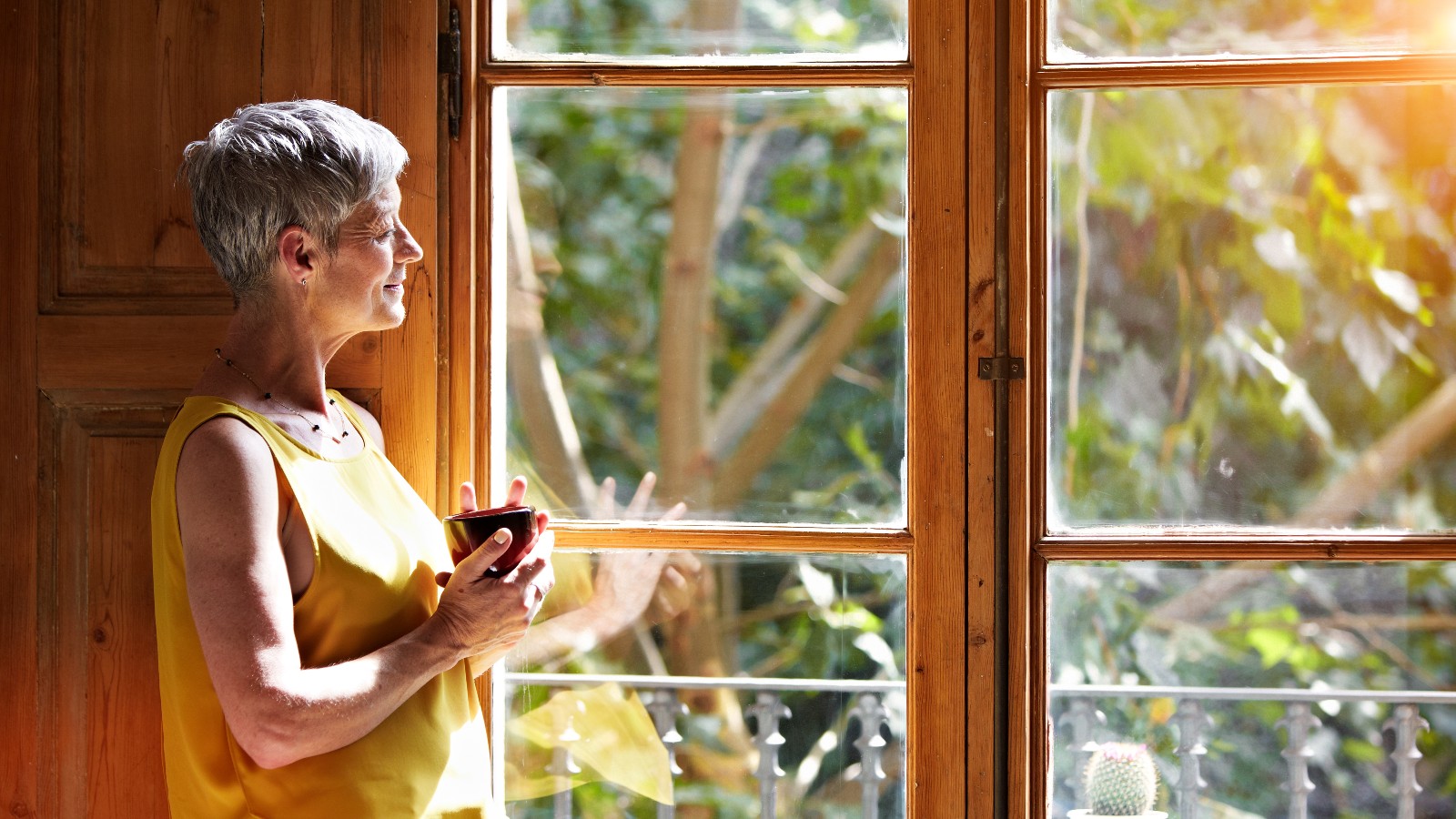
Coping with menopause
We're all aware that the menopause can be a difficult time, but there's no doubt that talking about it can help.
As with any problem, getting it out in the open is often the first step in making thing feel more manageable.
Sign up for the woman&home newsletter
Sign up to our free daily email for the latest royal and entertainment news, interesting opinion, expert advice on styling and beauty trends, and no-nonsense guides to the health and wellness questions you want answered.
Dr Rebecca Lewis, from themenopause and wellbeing centre Newson Health, explains that talking about the menopause can be feel awkward, but it's vital for all sorts of reason.
"Some women are intensely private—after all the symptoms are often very personal—vaginal dryness and irritation, uncomfortable sex, low libido etc," she said.
"Talking to other women going through the same thing is incredibly helpful as often women feel isolated and ’cut off‘ emotionally from their family and peer group due to their symptoms. Talking to other women helps them realise they are not alone in their experience, and will help raise awareness of how severe symptoms can be in some cases.
"Also, talking with other women will help them understand the symptoms better and how to get effective treatment. Talking empowers women and helps them cope knowing that several other women they know are going through the same thing."
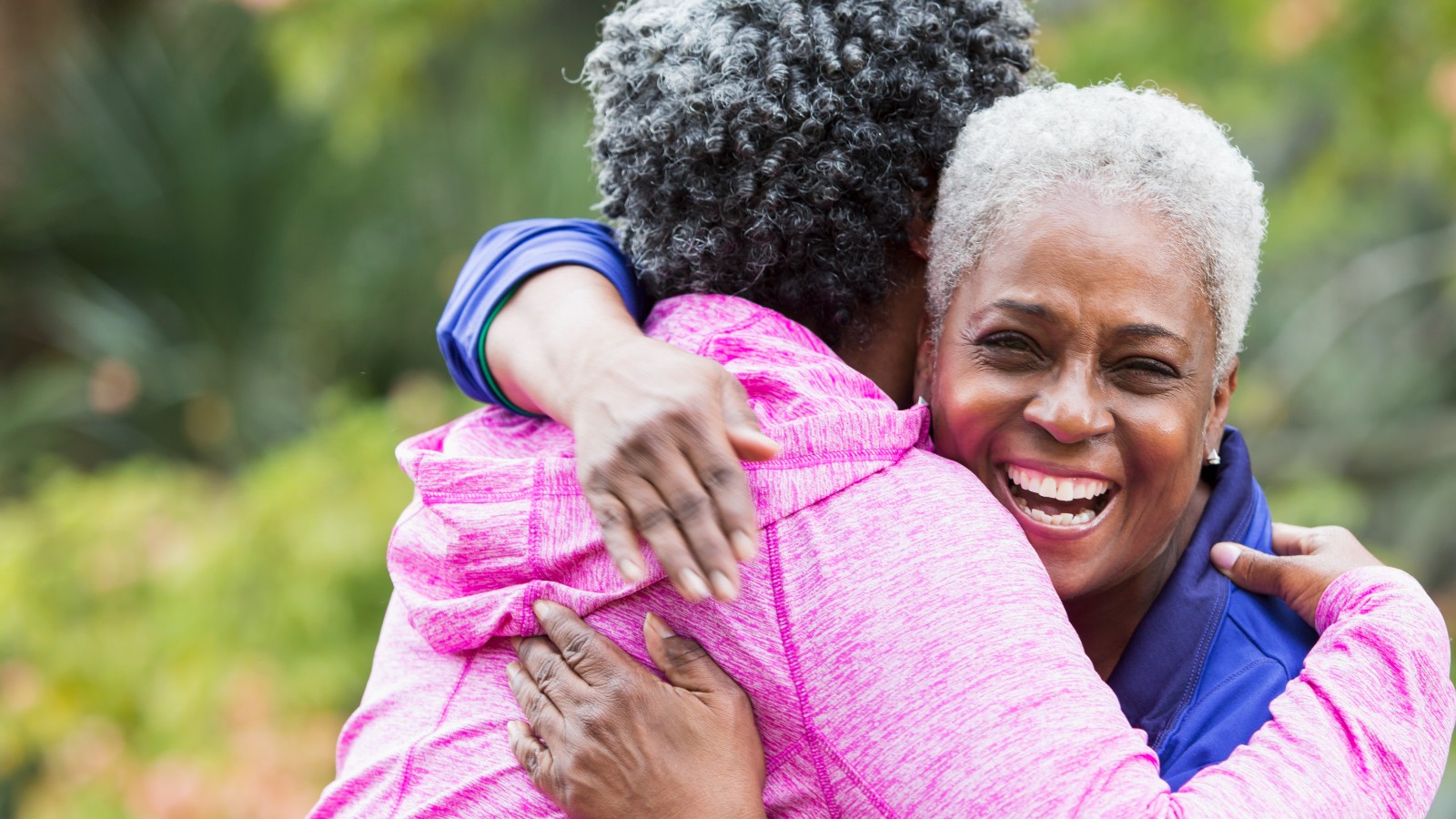
So where can you speak to someone, if you don't feel comfortable sharing with your loved ones? We rounded up a list of options so you can find the right one for you.
Menopause online support communities
If you feel slightly shy talking about your experiences with strangers face-to-face, an online menopause support group might be for you. Speaking to people virtually, with a degree of anonymity, can help you air your menopause grievances from the comfort of your own home.
Dr Rebecca recommends chatting online, but warns that it's sensible to question any information and medical advice you might find in chatrooms or similar.
If you're not sure where to get started, here's our list of the best online menopause support communities.
1. Peanut Menopause
A subset of the popular women's social network Peanut, Peanut Menopause is designed to connect people experiencing all stages of menopause through a supportive digital community. Here's everything you need to know to get started:
- Peanut Menopause is designed to lift the mystery surrounding the hormonal shift by creating a safe space for members to share their stories, post questions and discover relevant content.
- To sign up, users are asked to identify which stage of menopause they are at—perimenopause, menopause or postmenopause.
- You will then be granted access to a private network of people in the same situation, where they will be free to seek information, ask for support or simply have a friendly chat.
2. Menopause Matters
The forums of Menopause Matters are some of the most well-known, online groups for discussing all things menopause. With members posting every day, there's not much that isn't spoken about on here—including everything from menopausal sex, the ups and downs of HRT, and post-menopausal bleeding. Here are the basics for getting started:
- Set up your own personal account here by creating a username and password.
- You'll then having access to countless menopause discussion groups, where you can search for information, share your own experiences, or just enjoy the company of supportive people.
3. Menopause ChitChat
Menopause ChitChat is another chat-filled forum where members open up about a whole range of topics. One of their most popular threads surrounds discussion about menopause symptoms, so users can open up about what they've gone through and how it compares to others. Here's what you need to know to sign up:
- After you sign up by creating a username and password, you'll be given a free guide to managing menopause.
- You'll also gain access to forums where you can post your concerns and questions about menopause, particularly those related to symptoms.
- You can even start your own topic of discussion too, for anything that's particularly niggling at you.
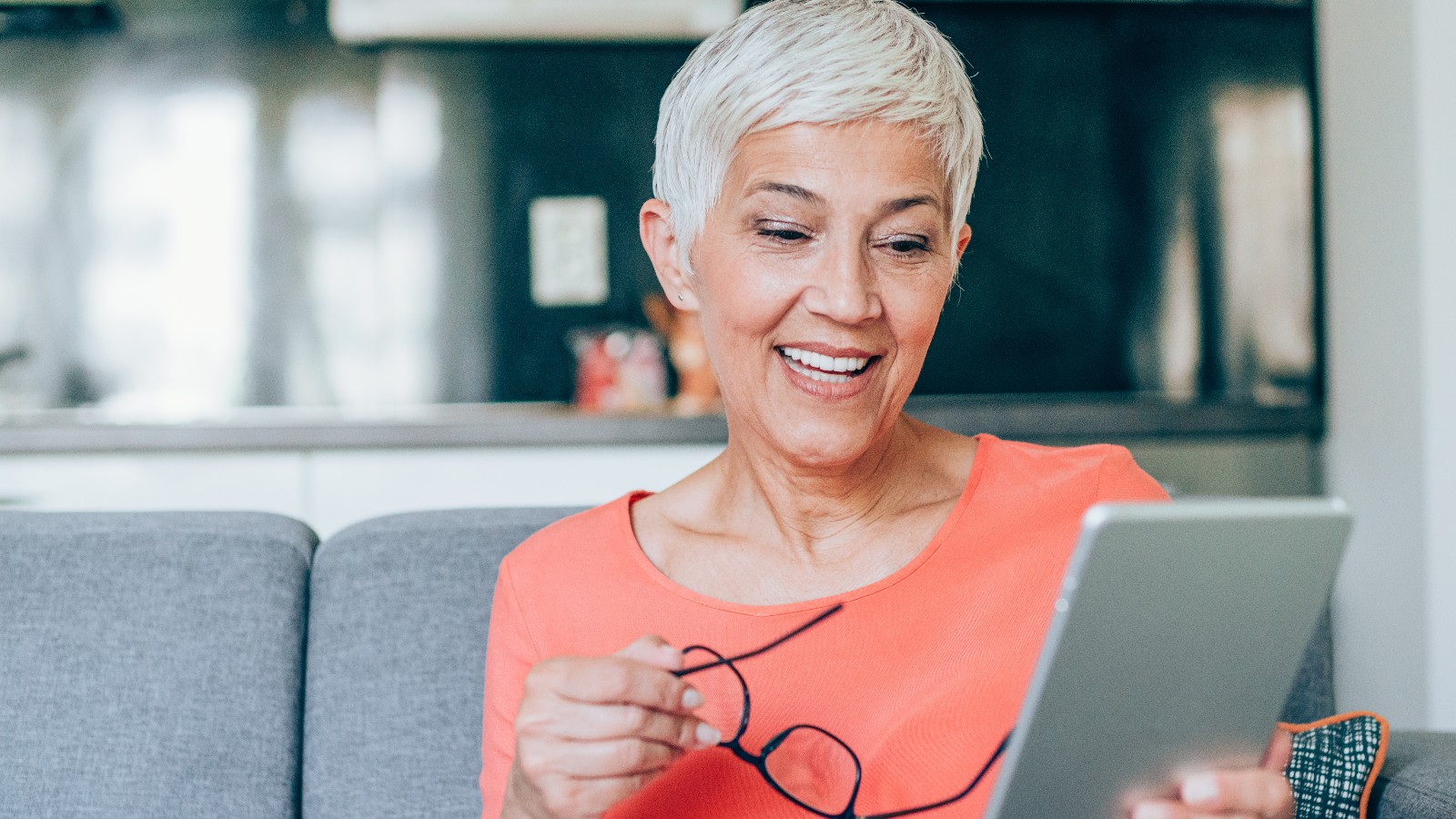
4. The Daisy Network
For some people, menopause doesn't arrive when you might expect, in your late 40s or early 50s. For many women, early menopause can happen for a variety of reasons. Officially termed premature ovarian insufficiency (POI), it typically refers to menopause that comes far earlier than normal—for some women, that could be as early as your teens, 20s, or 30s, although others have it happen in their early 40s.
During early menopause, your ovaries stop producing eggs years before they should—meaning falling pregnant can be very difficult. During POI, your hormone production is also affected, which can have an effect on your well-being.
The diagnosis can be life-changing—which is where the support of the Daisy Network comes in.

- The Daisy Network was set up to help support women—and their loved ones—who are going through early menopause. The charity uses an innovative scheme of 'networkers'—members of the organization who are there to act as contacts—for other members to talk to, based on their own experiences.
- As well as that, many members of the Daisy Network also arrange local networking, menopause support groups for real-life meets up, so you can offload face-to-face if you want.
- Membership costs £20 for a year, and the money is used to keep supporting women across the UK who may be struggling.
5. British Menopause Society
Although you don't have the opportunity to speak to other women here, on the Women's Health Concern website, the patient arm of the British Menopause Society, you can find everything you need to help answer your menopause questions. If that sounds of interest to you, here are all the details you need to know:
- Full of verified and impartial advice, the service is there to offer support and education to women about the menopause.
- There is a range of different resources on there, such as the opportunity for telephone calls with specialist nurses, factsheets, detailed and informative email newsletters, and even meetings, seminars, and workshops on all kinds of topics.
- Many of the helpful guides are available to download on their website here for free, but you'll have to pay for some of the other services; £20 for 10 minutes of telephone advice, and a minimum £10 donation for email help.
- There's also a super-handy function that can help you find a 'menopause specialist' in your area. Simply type in your location, and the radius within which you'd want the specialist to be, and it'll take you to another web page containing the name and location of the specialist, if you want to get in touch. They are specific BMS specialists, so you can rest safe in the knowledge that they're reliable.
6. North American Menopause Society
The North American Menopause Society is another great resource for people navigating menopause. This nonprofit organization, used by medical professionals and patients alike, offers everything from advice on how to find a menopause practitioner to answers on the most FAQs menopause questions. It also offers free notes written by menopause experts in a range of different languages.
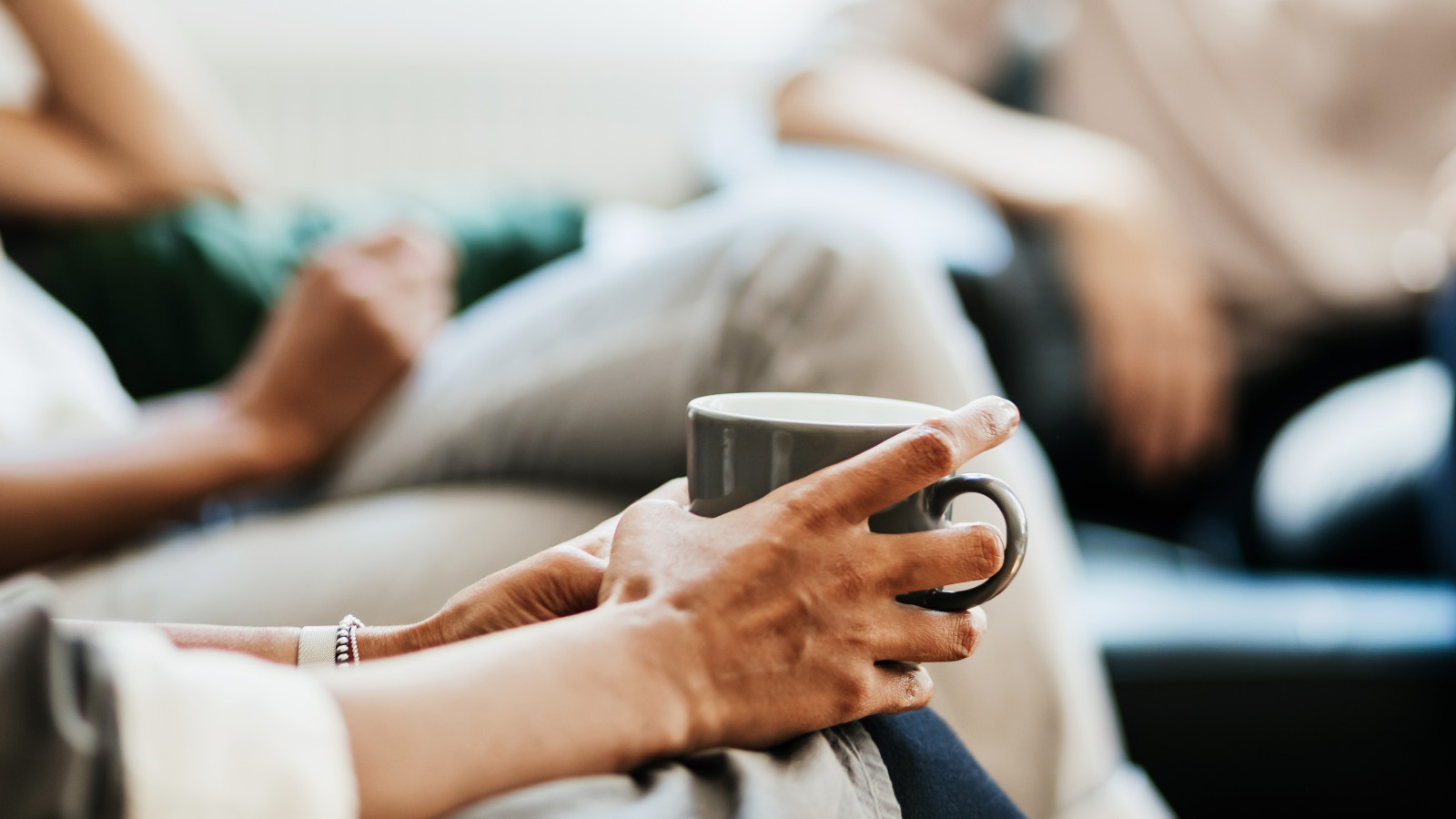
7. Red Hot Mamas
Launched back in 1991, Red Hot Mamas is now the largest menopause education program in America. Its program is currently being rolled out in over 200 hospitals across the US and Canada, but plenty of its resources can also be found for free online.
- Users can expect access to an online support community, expert advice and regularly updated, comprehensive information.
- Red Hot Mamas also host special education events related to managing other midlife symptoms, like osteoporosis, vaginal health, and hot flashes.
- You can join the community for free here.
8. Menopause Cafe
Perhaps one of the best and most unique objectives out there for menopause support is the Menopause Cafe.
- At the Menopause Cafe, groups of people meet up for a coffee, where they're then free to discuss any aspect of the menopause that they like.
- The Cafes, which take place around the country on various dates across the year, are welcome to everyone; even people who aren't going through it. The aim is to open up a conversation to help those in the throes of the menopause, and to help their loved ones understand it better, to help give support.
- Spouses, families, friends, and colleagues are all welcome to attend.
- You can find out when and where your local menopause cafe is next on here.
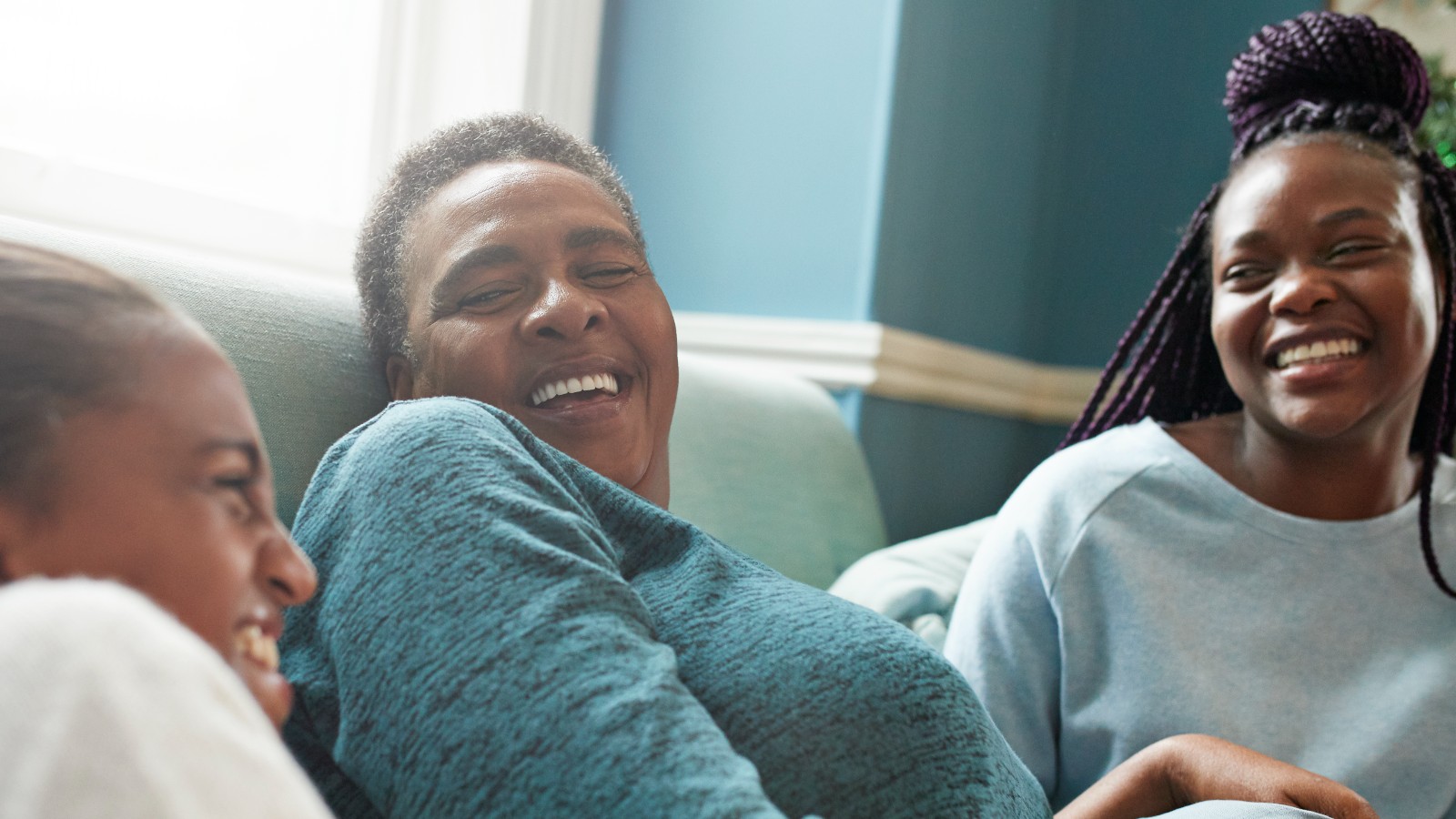
But most importantly, if you're finding the menopause difficult to cope with, visit your GP. Talking about it is vital, but medical help from your doctor can help to alleviate some of the pressures and symptoms of the life stage.
Many menopausal women favor HRT, but there is a range of treatment options, as well as more holistic options that can offer some relief.
The most important thing to remember is that you're never alone—and there's always someone out there who can help with what you're going through.
Amy Hunt is an experienced digital journalist specialising in homes, interiors and hobbies. She began her career working as the features assistant at woman&home magazine, before moving over to the digital side of the brand where she eventually became the Lifestyle Editor up until January 2022. Amy won the Digital Journalist of the Year award at the AOP Awards in 2019 for her work on womanandhome.com.
-
 Considering a summer hair refresh? Demi Moore’s chic bob transformation is all the inspiration you need to book that salon appointment
Considering a summer hair refresh? Demi Moore’s chic bob transformation is all the inspiration you need to book that salon appointmentChop, chop, it's time to take a trip to the salon
By Sennen Prickett
-
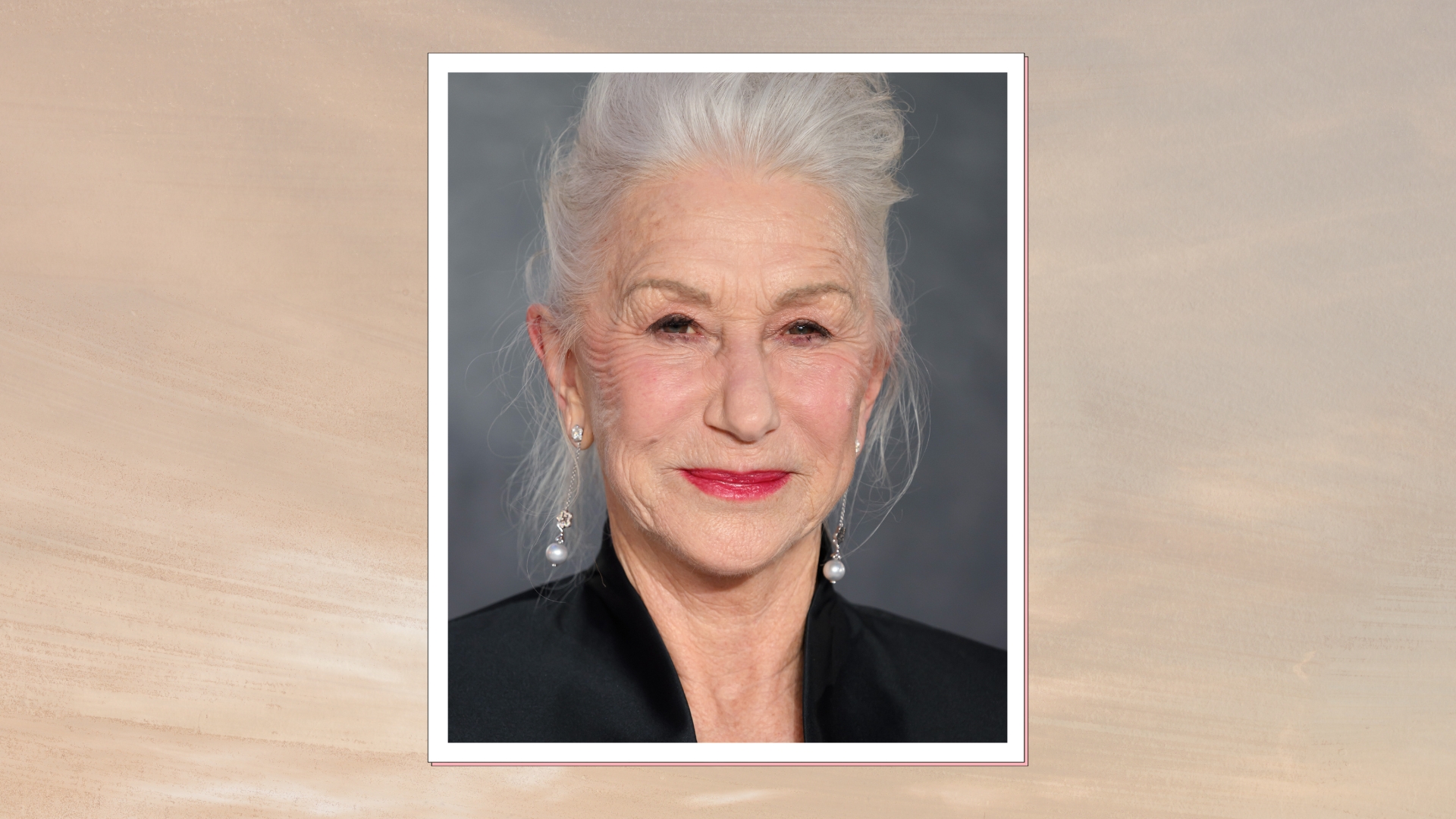 Helen Mirren just embraced Cartier's signature colour on her lips - and this easy trick will make it less intimidating to replicate
Helen Mirren just embraced Cartier's signature colour on her lips - and this easy trick will make it less intimidating to replicateWhen in doubt, do as Helen Mirren does and steer clear of matte formulas...
By Naomi Jamieson
-
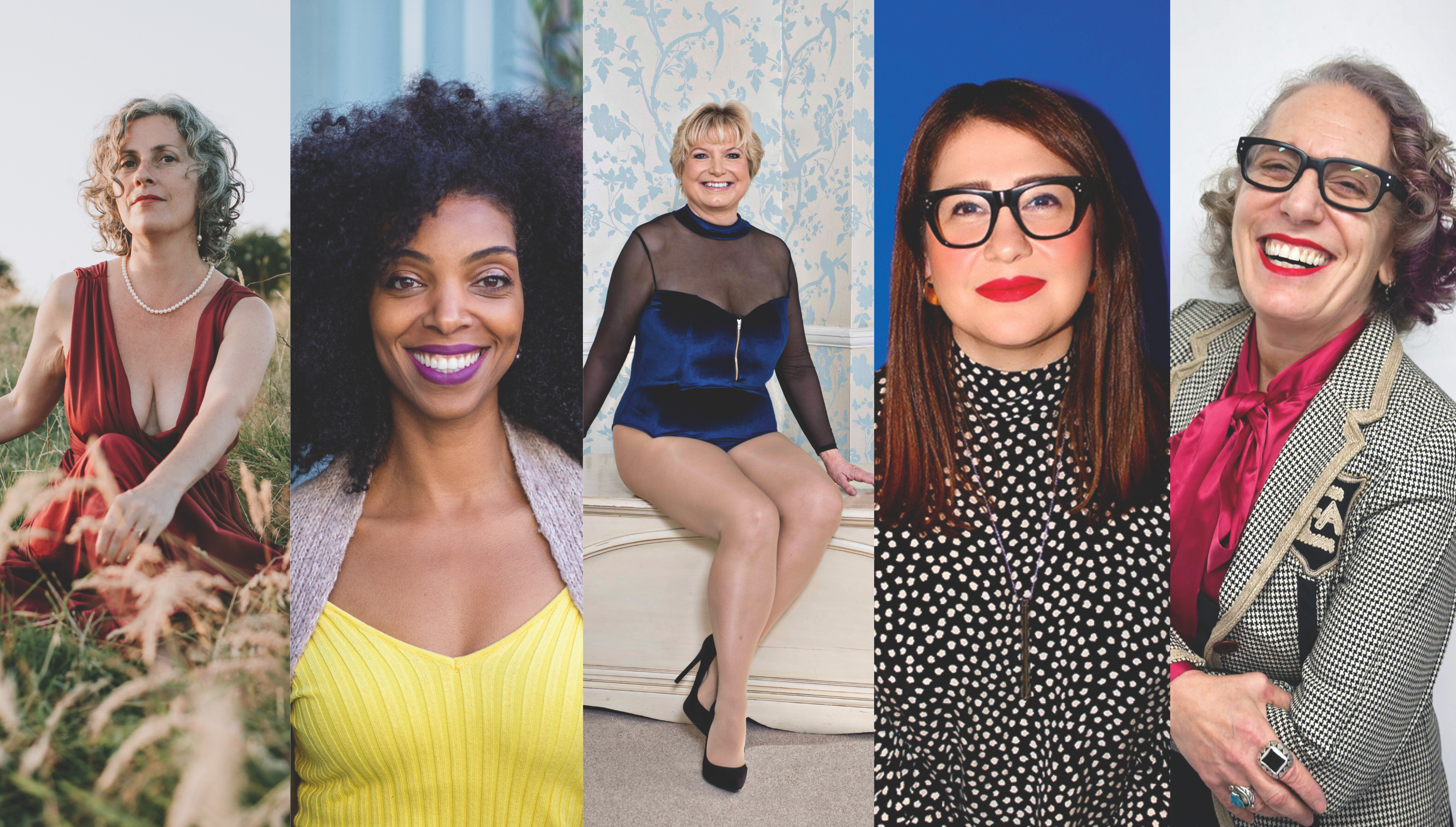 5 sexperts share their secrets to better sex for mature women
5 sexperts share their secrets to better sex for mature womenThese women know how to put the va-va-voom back into the bedroom… possibly even the kitchen! Here's what we've learned from them
By Kim Willis
-
 Can menopause cause a loss of taste and smell? Plus, 6 other signs of menopause you might not expect
Can menopause cause a loss of taste and smell? Plus, 6 other signs of menopause you might not expectCan menopause cause a loss of taste and smell? It's more than just colds and flu that can change our tastebuds
By Emily Smith
-
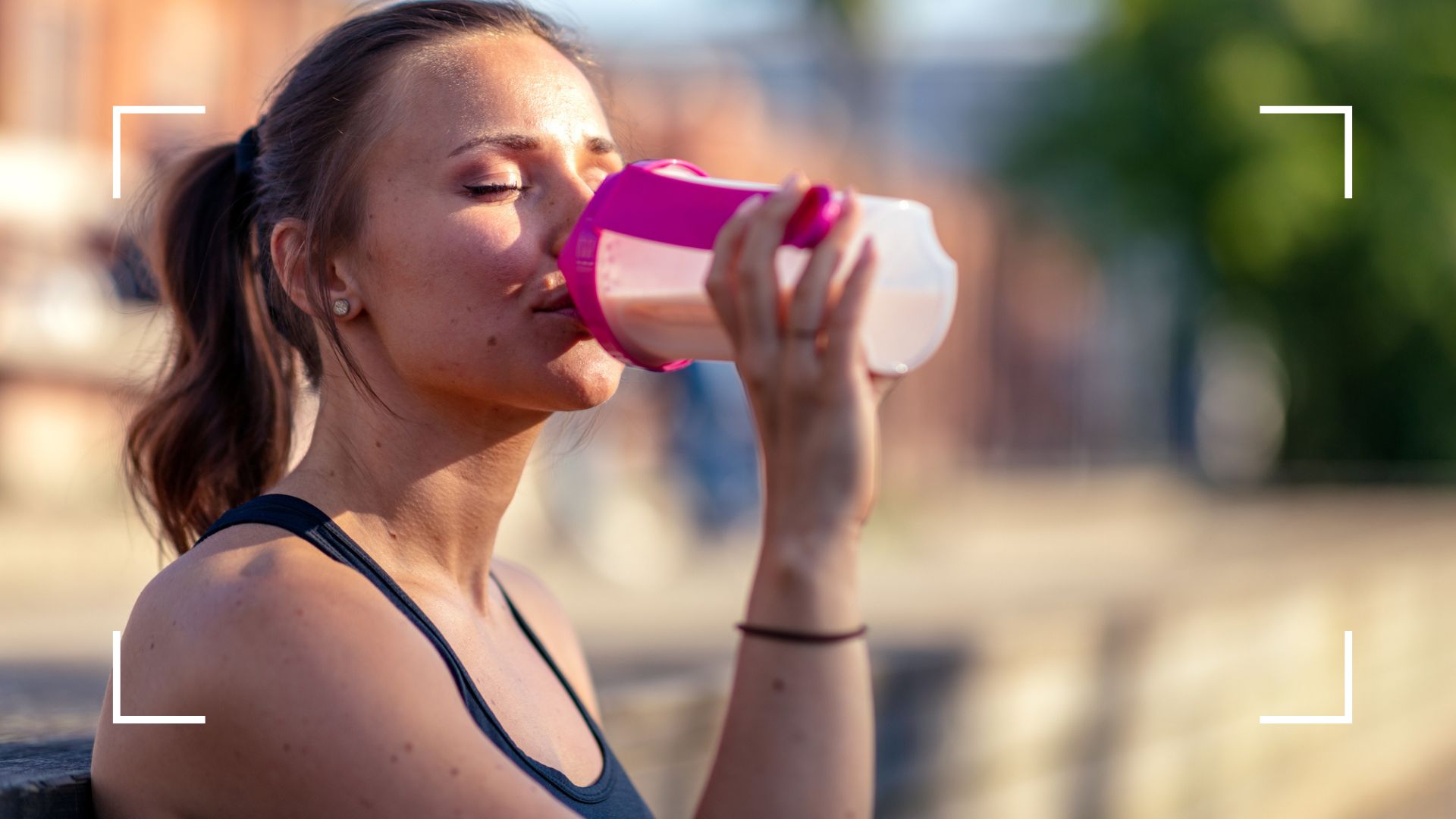 The health benefits of protein powder for women, according to a nutritionist
The health benefits of protein powder for women, according to a nutritionistWe've got the scoop on the benefits of protein powder when it comes to your health
By Lucy Gornall
-
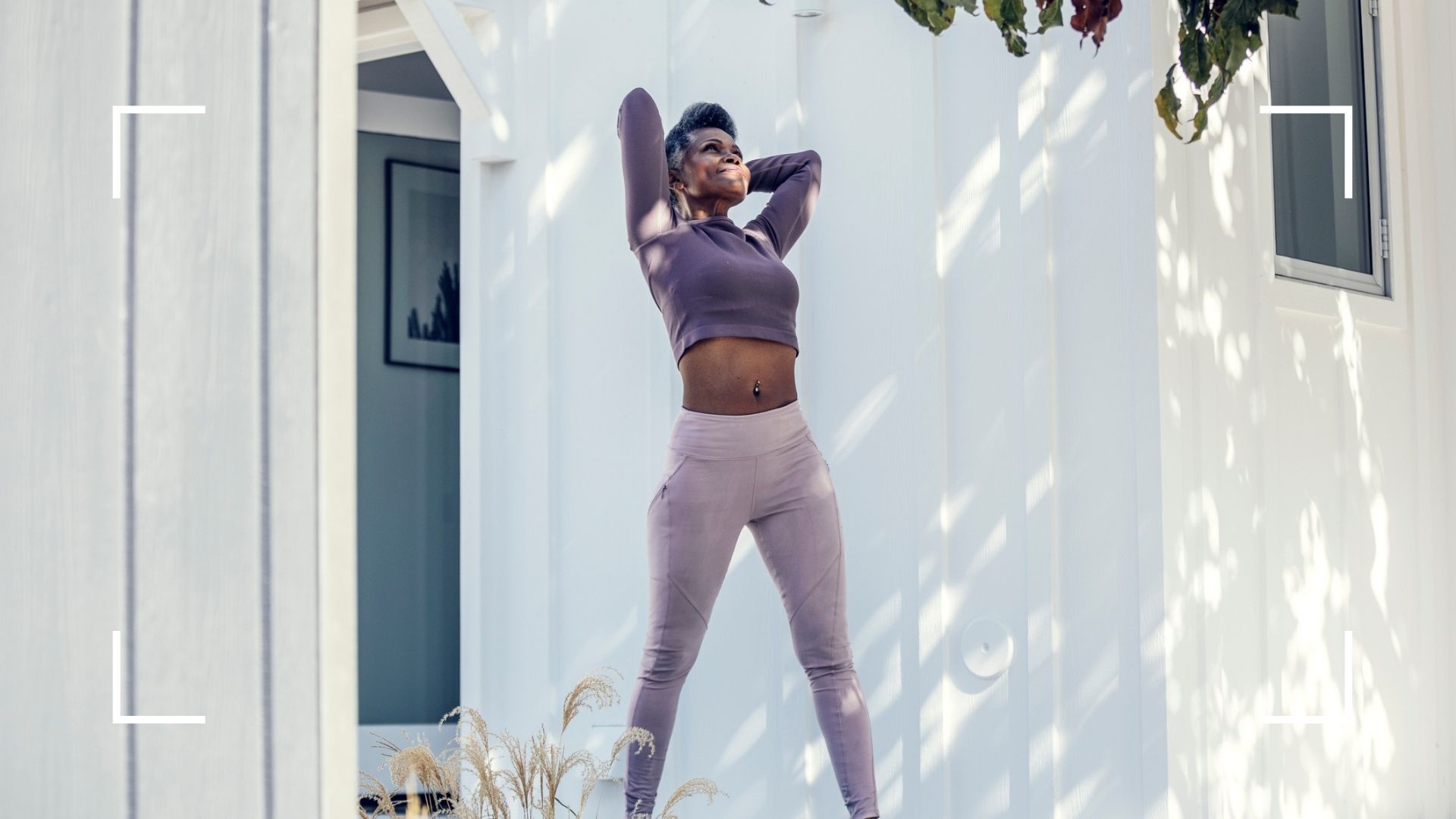 Wondering if you're postmenopausal? These are 9 ways your body changes post-menopause
Wondering if you're postmenopausal? These are 9 ways your body changes post-menopauseThese are the body changes you can expect if you're postmenopausal
By Lauren Clark
-
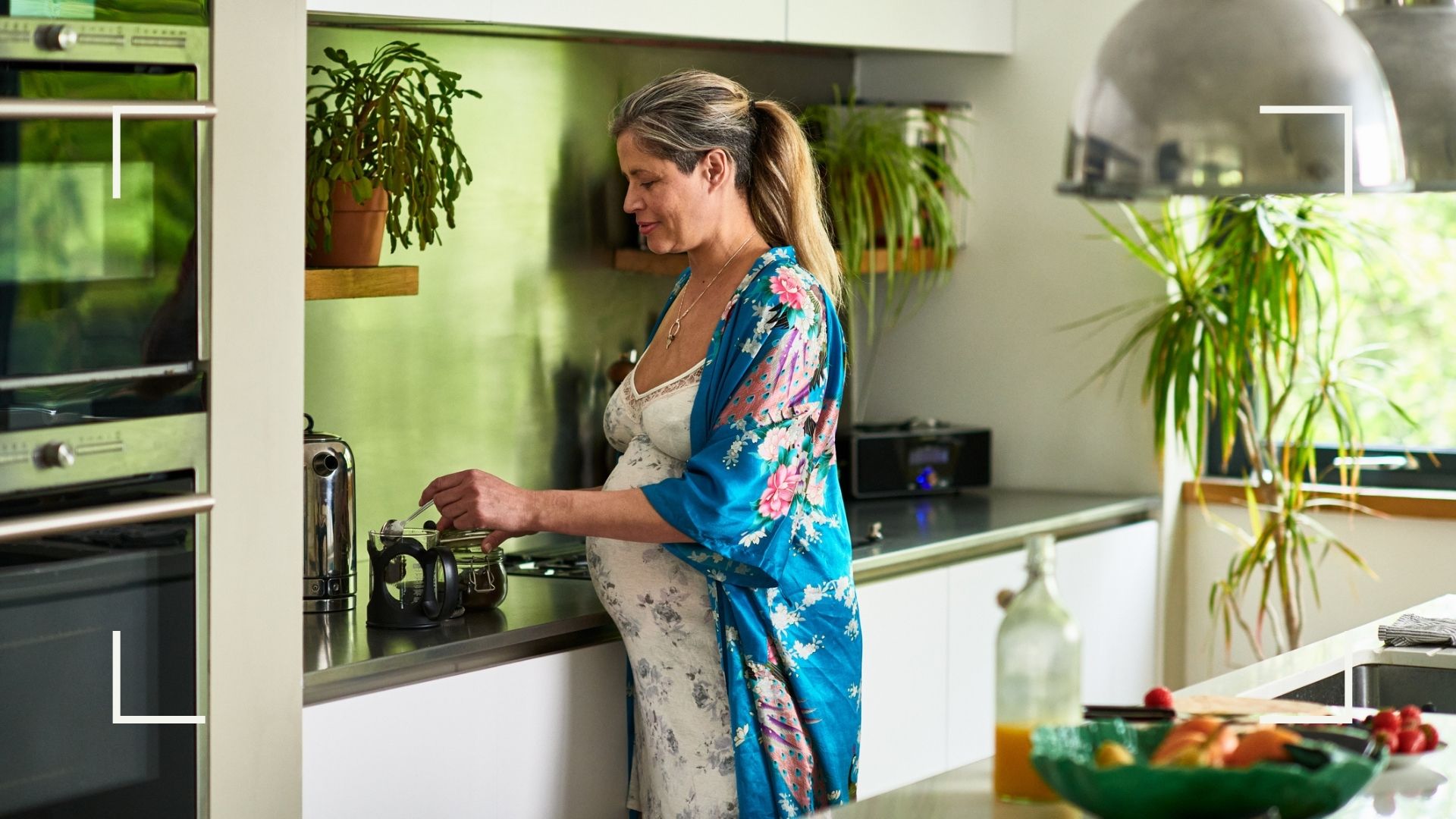 Can you get pregnant during perimenopause? Here’s how your fertility changes from your 40s
Can you get pregnant during perimenopause? Here’s how your fertility changes from your 40sIf you’re wondering can you get pregnant during perimenopause, we’ve got the expert verdict
By Lauren Clark
-
 What are the main menopause symptoms? Find out the signs and when to see your doctor
What are the main menopause symptoms? Find out the signs and when to see your doctorA team of experts outline common menopause symptoms and how to deal with them
By Stacey Carter
-
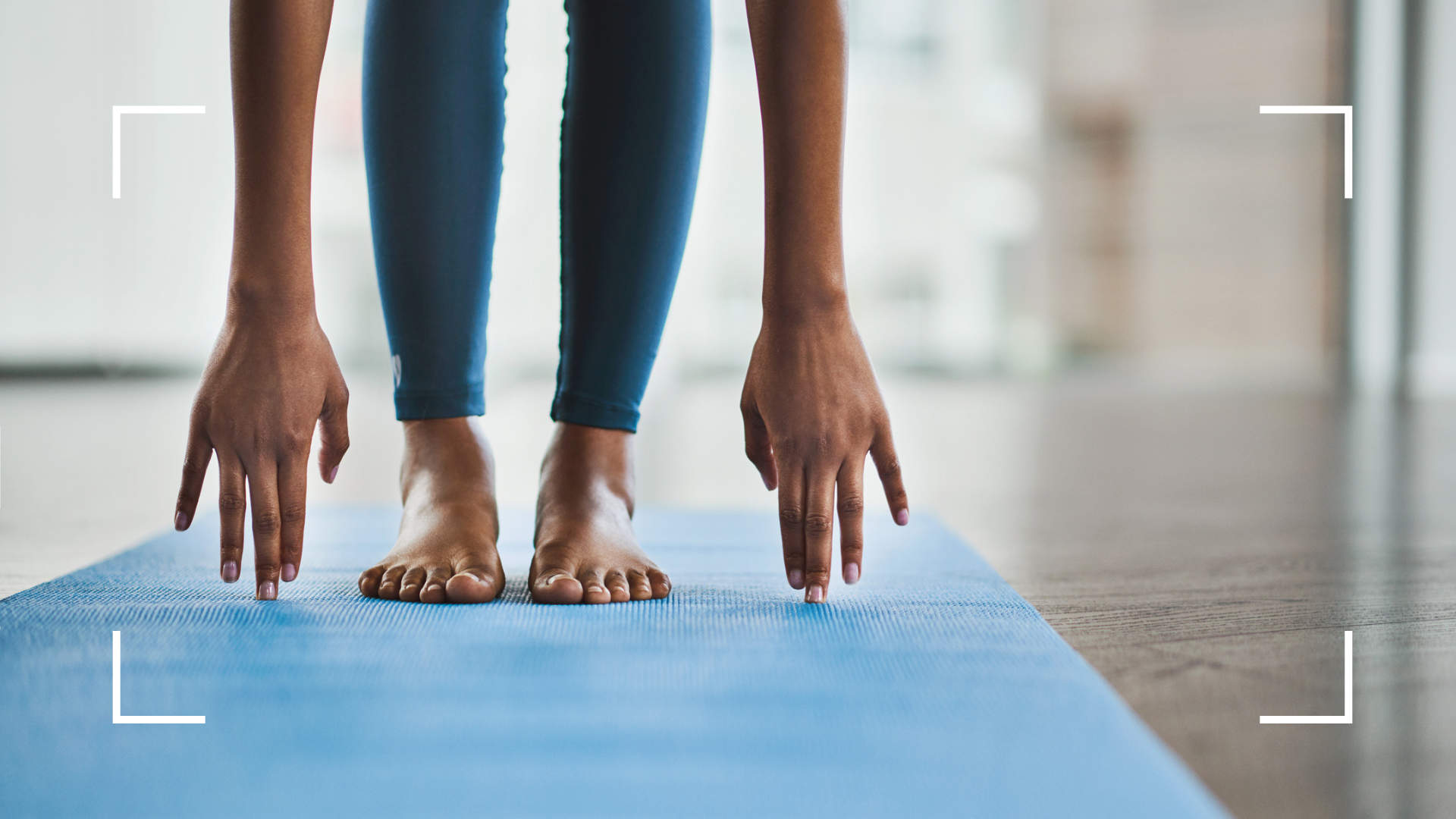 Here's how to tell whether you're experiencing menopausal weight gain—and what to do about it
Here's how to tell whether you're experiencing menopausal weight gain—and what to do about itIf menopausal weight gain is knocking your confidence, this is everything you need to know...
By Lauren Clark
-
 How to calm down hot flushes if you are going through the menopause
How to calm down hot flushes if you are going through the menopauseHot flushes are thought to be caused by hormonal fluctuations—these are the best ways to ease them...
By Lauren Hughes
